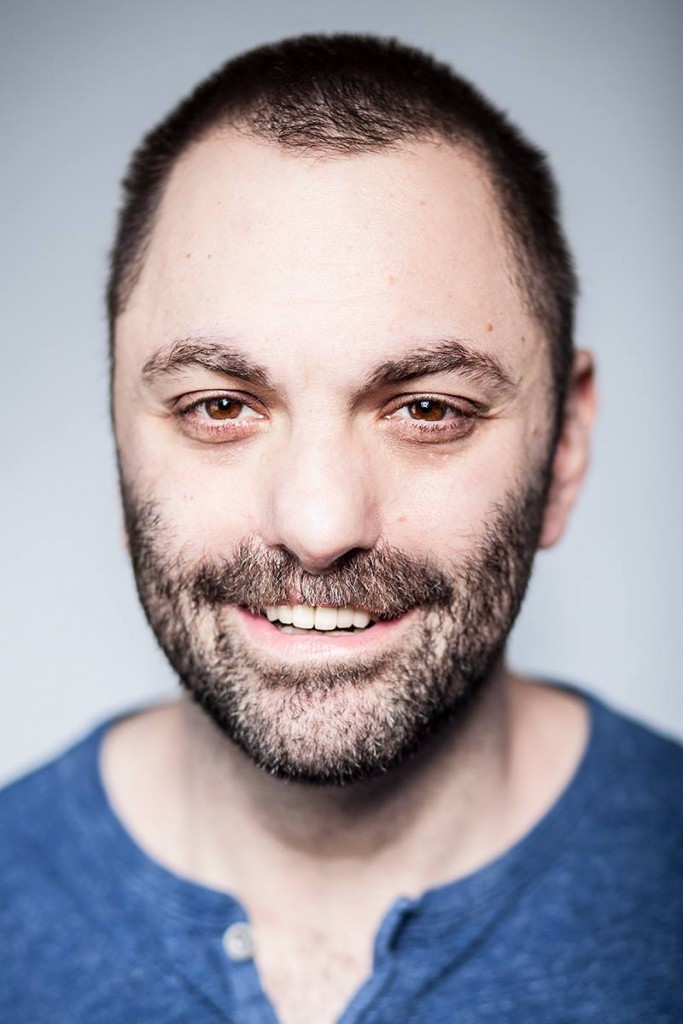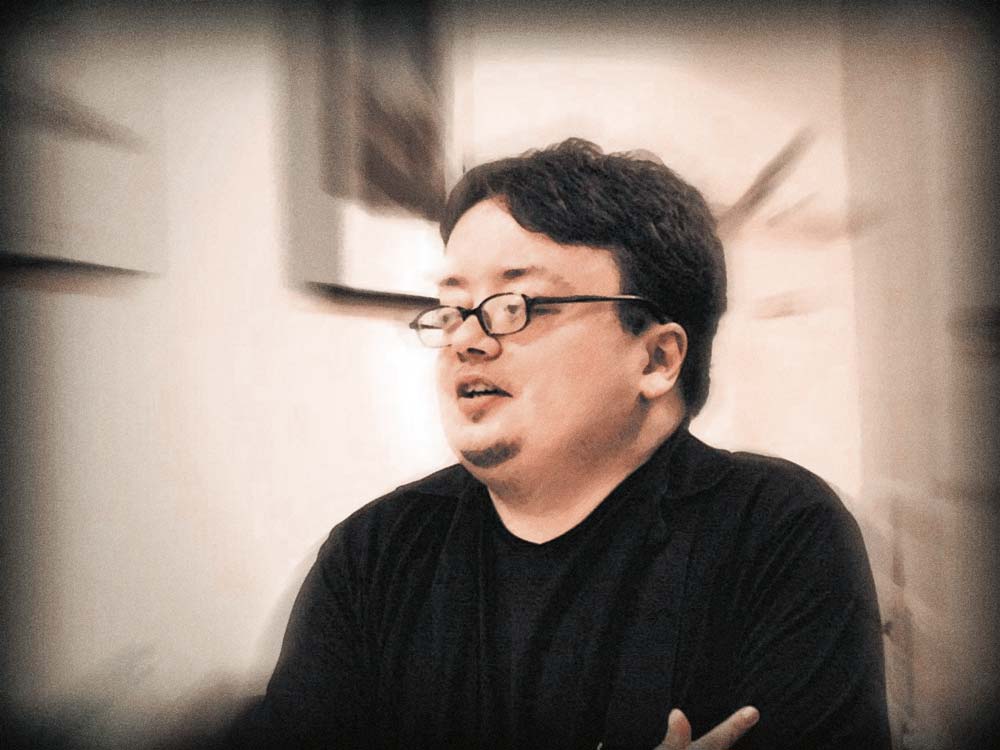John Belluso was a playwright whose credits included The Rules of Charity, The Body of Bourne, A Nervous Smile, and The Poor Itch, the last one produced posthumously. He was born in 1969 and suffered from a rare bone disorder called Camurati-Engelmann disease, which required him to use a wheelchair. He died in 2006 at the age of 36. Below, playwright Christopher Shinn remembers his friend.
In my 20s my best friend was the disabled playwright John Belluso.
I remember when we started hanging out a lot during our time in Youngblood, a program for early-career playwrights at Ensemble Studio Theatre, my pushing John down 10th Avenue in his wheelchair and feeling a sudden anxiety: If I got close to him, he might come to depend on me, and as a disabled person he would be really needy.
That this idea disturbed me so much was disturbing to me, and I understood in that moment that I had to make a commitment to getting closer to John, because that was my desire; to not honor that desire because of a fear that was more prejudicial than reasonable would be a horrible loss for me.
As our friendship grew I learned a lot about what it actually meant to be disabled. Much of this was practical: when we drove cross country in August 2001, meandering from L.A. to New York City almost entirely on back roads, I had to help him navigate motels and restaurants and rest stops that were aggressively designed for the able-bodied alone. I saw what it was like to be openly stared at, in big cities and centers of culture as much as in small towns. Even when accessibility was present, there were indignities I witnessed John endure, like having to enter an Atlantic City restaurant through a side door and move through a hallway of stinking garbage en route to a fancy steak dinner.
Much of what I came to understand was theoretical: John’s grasp of disability theory, and critical theory in general, was extraordinary, and he spoke of even the most complex Lacanian and Foucauldian ideas in a down-to-earth, simple way: Lacan’s “body in pieces” and Foucault’s interrogation of surveillance were not abstractions to John.
Some of what I learned was “off the record”—John had a sweet persona, but privately he could be cutting about the (what we would now call) microaggressions he faced attempting to bring disability representation to mainstream theatre with his beautiful plays. This was a private experience of disability I was privileged to have access to.

My friendship with John informed many different parts of my life. In 2001 I fell in love with an actor and we dated for a while, and at this time a neighbor who lived on my floor got in a car accident and lost a leg. He’d frequently knock on my door and ask me to go down and buy him cigarettes. Often the elevator wasn’t working, and even when it was, sometimes it was just too hard for him to get down on his own. So I would go and buy him cigarettes.
My actor boyfriend warned me not to become a “caretaker.” He was angry that I helped this man—he felt I was letting myself be taken advantage of. I knew that was a warning sign this guy was selfish and unaware of his privilege, but I ignored it. A few months later he abruptly dumped me, and at a painful time—my father was dying of leukemia. When he left me he said, “I realized I just can’t take this on right now.”
In 2002 I wrote about this experience in my play Where Do We Live, my first play with a disabled character. John died in 2006. In 2012, as part of cancer treatment, I had my lower left leg amputated. When my doctor told me she would need to do this, I almost immediately thought of John: He had often talked about how anyone can become disabled at any time. I had always understood intellectually that he was right, but now I really understood.
In the time that has followed I have thought of John a lot. I understand now so much more intimately what his life was like in New York City: What it means to be stared at on the street or navigate icy sidewalks; how it feels to be openly vulnerable to attack and mistreatment; how dating and sexuality become charged when disability is present.
In some ways things feel different for the disabled today than they did in the time I got to know John. It’s amazing to hear young people be vocal about the oppressiveness of ableism and body shaming. This kind of consciousness just didn’t exist when John and I were at NYU together in the mid ’90s. Today there are meaningful movements to increase visibility and representation in entertainment. This was barely talked about 20 years ago by able-bodied people.
But I can’t really tell how much this signifies real change. It’s one thing to condemn ableism; it’s another for an able-bodied person to date a disabled person. The Oscar for Best Actor last year went to another able-bodied actor playing a disabled character [Eddie Redmayne in The Theory of Everything], and it’s hard to imagine the filmmakers even for a moment considered using someone disabled for the part.
What I took most from John is the understanding that disability is, sooner or later, a reality every human being will experience.
Taking John as my role model, I try to approach the issues disabled people face with warmth, understanding, and humor. John knew that shaming people does not help them change, and he even empathized with the fear and loathing around disability. He sought to understand it, to discover its roots so that he could be more effective in dismantling it. He had a righteous anger, too, and could be bitterly cynical with the best of them; but his plays and his person were suffused with generosity and a wide-ranging empathy.
What I took most from John is the understanding that disability is, sooner or later, a reality every human being will experience. Maybe this insight partially explains John’s lack of resentment and his ability to create big-hearted work in a time when few wanted to hear it, when he would have been fully justified in feeling and writing from pure anger. I learned so much from him, and I am trying to honor his memory.
Christopher Shinn is a playwright. His most recent play, An Opening in Time, premiered at Hartford Stage last month. His 2013 play Teddy Ferrara runs through December 5 at the Donmar Warehouse in London.


